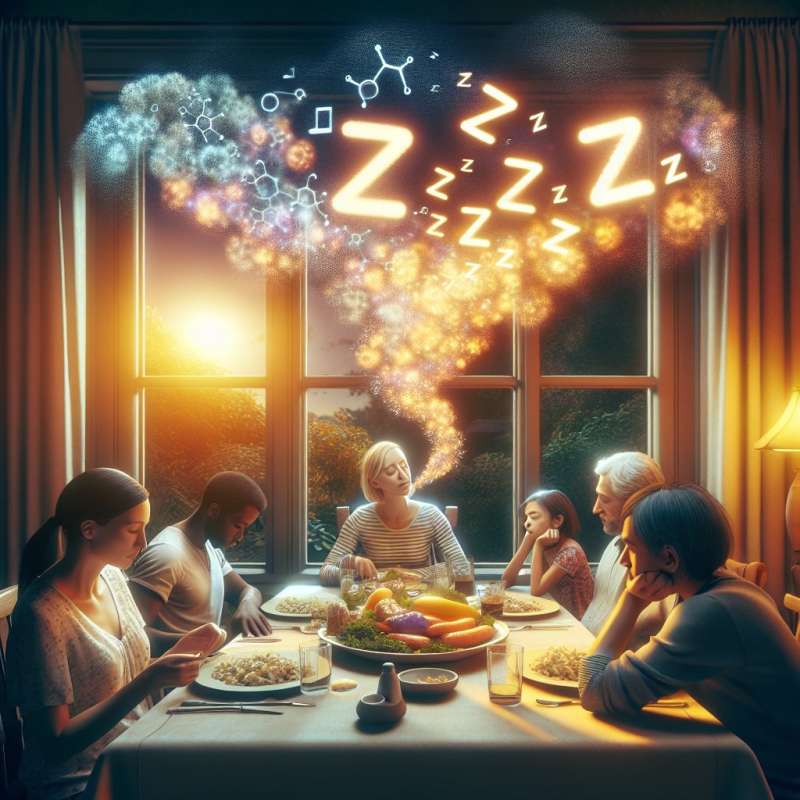
Understanding Food Coma
A food coma, or postprandial somnolence, is the drowsiness people often feel after eating a large meal. It's not just your imagination; there's science behind this phenomenon.
Digestion and Energy Diversion
During digestion, blood flow increases to the stomach and intestines. This heightened activity requires energy, diverting it from other systems and potentially leading to a feeling of tiredness.
Role of Specific Nutrients
Foods high in carbohydrates, fats, and tryptophan can intensify a food coma. These nutrients affect insulin production and serotonin levels, influencing sleepiness.
Insulin Surges Impact
Large meals cause insulin levels to spike, which facilitates the absorption of certain amino acids. This leaves tryptophan competing less and thus, more available to the brain, promoting sleepiness.
Parasympathetic System Activation
Eating activates the 'rest and digest' parasympathetic nervous system. This shift from a sympathetic 'fight or flight' state supports relaxation and may trigger drowsiness.
Cultural and Psychological Factors
Food comas aren't just biological. Cultural traditions around heavy meals, relaxation, and social behaviors can also psychologically condition us to feel sleepy after eating.
Combating the Coma
To avoid a food coma, eat balanced meals, opt for smaller portions, include light physical activity post-meal, and ensure adequate hydration. These habits help manage energy levels.Tryptophan Turkey Myth
Turkey isn't the main tryptophan culprit; cheddar cheese surprisingly contains more of this sleep-inducing amino acid.
What triggers postprandial somnolence?
Lack of sleep at night
Eating a large meal
Drinking caffeinated beverages
Company